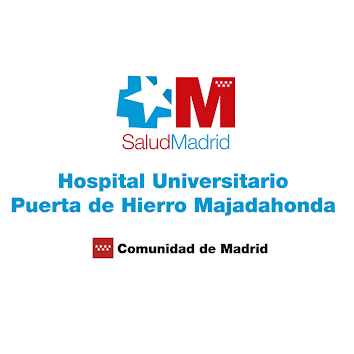Non-Invasive Prospective Pilot in a Live Environment to improve diagnosis in primary care
Conclusions
Legit.Health significantly enhanced primary care physicians' diagnostic accuracy, increasing it from 72.96% to 82.22%.
The impact of Legit.Health varied across different skin conditions, demonstrating significant improvements in hidradenitis suppurativa, urticaria, and actinic keratosis. However, p-values were not statistically significant for all cases, due to the low number of samples per pathology.
Approximately 49% of cases did not necessitate a referral. Additionally, 60.74% of cases across all specialities could be effectively managed remotely.
Reduction of referral and use of remote consultation
Previous studies reported that 66% of patients visiting primary care HCPs are referred to dermatology, with very low (1%) remote consultation rates (González-López et al., 2019). In terms of urgent referral and triage, some institutions have reported that 76.8% of patients referred from primary HCPs to dermatology result in benign diagnoses (Pagani et al., 2023).
In this experiment, we found that 49% of cases should be referred according to the primary HCP with the information provided by the device, which is 17% lower than the aforementioned referral rates. Additionally, our results improve the remote consultation rates, suggesting that diagnostic support tools can help foster remote consultations.
Summary
- Code: LEGIT.HEALTH_PH_2024_NIPPLE
- Status: Finished
- Start date: June 4th, 2024
- Finish date: September 13th, 2024
- Acceptance criteria:
- An improvement of diagnostic accuracy on both primary care physicians and dermatologists.
- A reduction of 30% of referrals to dermatology (Warshaw et al. 2011).
- An improvement in remote consultations.
Results
An analysis by pathology identified significant impacts for certain conditions, as detailed in the table below:
| Condition | Accuracy (%) | Accuracy with Legit.Health (%) | Relative difference (%) | p-value |
|---|---|---|---|---|
| Actinic keratosis | 55.56 | 83.33 | 49.98 | 0.125 |
| Pustular psoriasis | 5.56 | 22.22 | 299.64 | 0.25 |
| Plaque psoriasis | 96.30 | 96.30 | 0.00 | 1.00 |
| Nevus | 75.56 | 77.78 | 2.91 | 1.00 |
| Melanoma | 86.67 | 91.11 | 5.12 | 0.69 |
| Urticaria | 73.33 | 91.11 | 24.24 | 0.02 |
| Hidradenitis suppurativa | 64.44 | 80.00 | 24.14 | 0.04 |
| Basal cell carcinoma | 91.67 | 88.89 | -3.00 | 1.00 |
Referral
In assessing the impact of Legit.Health on referrals, our findings revealed that 48.89% of cases did not necessitate a referral.
| Condition | Do not require referral (%) |
|---|---|
| Nevus | 60.00 |
| Melanoma | 2.22 |
| Basal cell carcinoma | 7.41 |
| Urticaria | 88.89 |
| Pustular psoriasis | 11.11 |
| Actinic keratosis | 33.33 |
| Plaque psoriasis | 81.48 |
| Hidradenitis suppurativa | 71.11 |
Remote consultations
Furthermore, we examined the feasibility of handling cases remotely through teledermatology. The results show that 60.74% of the cases can be handled remotely.
Conducting a Pearson's chi-squared test on the necessity for referrals and teleconsultations, we concluded with 95% confidence that a strong association exists between referrals and remote consultations. Specifically:
- 36.67% of the cases do not require a referral and can have follow-up remotely
- 12.22% of the cases do not require referral but require an in-person appointment
- 24.07% of the cases require referral and remote consultation
- 27.04% of the cases require a referral in addition to an in-person appointment
| Pathology | Can be handled remotely (%) |
|---|---|
| Nevus | 55.56 |
| Melanoma | 42.22 |
| Basal cell carcinoma | 44.44 |
| Urticaria | 75.56 |
| Pustular psoriasis | 38.89 |
| Actinic keratosis | 61.11 |
| Plaque psoriasis | 81.48 |
| Hidradenitis suppurativa | 75.56 |
Background and rationale
Dermatological conditions represent a significant portion of primary care consultations, constituting approximately 5% of all visits. However, discrepancies between diagnoses made by primary care physicians and dermatologists remain substantial, with concordance rates between 57% and 65.52%. This gap in expertise often leads to misdiagnoses, incorrect referrals, and delays in appropriate treatment, particularly in rare and severe conditions. The limited availability of dermatologists, especially in rural areas, further complicates patient care, underscoring the need for innovative solutions to optimize resource allocation and improve diagnostic accuracy.
Teledermatology has shown promise in reducing the pressure on in-person consultations by enabling remote assessments. However, the use of artificial intelligence (AI) presents a transformative opportunity to enhance the diagnostic capabilities of primary care physicians. Legit.Health, an AI-based medical device, has already been validated in the diagnosis of skin conditions and offers advanced tools, such as the automatic scoring of diverse pathologies. This pilot study aims to evaluate whether the use of the Legit.Health medical device can increase the true accuracy of healthcare professionals (HCPs) in the diagnosis of multiple dermatological conditions.
Design
Prospective observational analytical and cross-sectional study. It is designed so as to assess if the use of the medical device Legit.Health by dermatologists and primary care physicians can increase the accuracy in the diagnosis of multiple dermatological conditions, who will be presented with 29 images of patients with different skin conditions. In this case, the data collection will include the diagnosis accuracy for different dermatological pathologies. The study adhered to strict ethical guidelines, ensuring patient confidentiality and compliance with international standards. Patients were provided with detailed information and informed consent. The study's robust methodology aimed to assess the clinical utility and usability of the device.
Product Identification
| Information | |
|---|---|
| Device name | Legit.Health Plus (hereinafter, the device) |
| Model and type | NA |
| Version | 1.1.0.0 |
| Basic UDI-DI | 8437025550LegitCADx6X |
| Certificate number (if available) | MDR 792790 |
| EMDN code(s) | Z12040192 (General medicine diagnosis and monitoring instruments - Medical device software) |
| GMDN code | 65975 |
| Class | Class IIb |
| Classification rule | Rule 11 |
| Novel product | FALSE |
| Novel related clinical procedure | FALSE |
| SRN | ES-MF-000025345 |

